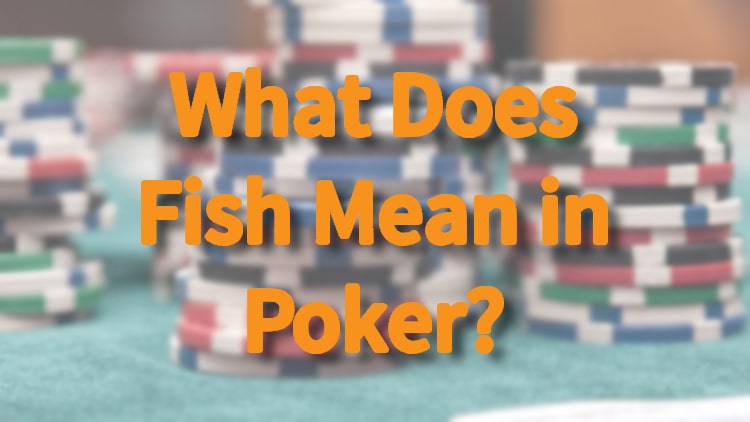
In the dynamic and intricate world of poker, numerous terminologies and jargon are used to describe players, their actions, and the game's strategies. One such term, which may seem out of place in a poker context, is 'Fish'. This term has a unique connotation in the poker sphere; read on to learn more.
What Is A Fish In Poker?
A 'Fish' in poker is a term associated with a player who is deemed to be less experienced or less proficient in their poker strategies. Often, this player is seen as an easy target for more seasoned players, who are colloquially known as 'Sharks'.
In essence, the term 'Fish' is used to describe a player who lacks the skill or experience to make consistent and potentially winning decisions, thereby making them easy prey for the 'Sharks' of the poker table.
However, it's important to remember that every player starts as a 'Fish' at some point in their poker journey. Gaining experience, learning strategies, and understanding the nuances of the game are all part of the journey of transforming from a 'Fish' to a more competent player.
How Do You Spot A Fish In Poker?
Identifying a 'Fish' in a poker game can provide a significant advantage to more experienced players. Here are a few tell-tale signs that can hint at the presence of a 'Fish' at the poker table:
- Inexperienced participants in poker frequently exhibit a range of strategic missteps that set them apart from their more adept counterparts. A notable behaviour is their tendency to play too many hands, demonstrating a clear misunderstanding of strategic hand selection.
- Another common pitfall is their tendency to commit chips to the pot through continuous calls, disregarding the strength of their hand. This habit underscores a fundamental gap in their grasp of pot odds and the mathematical aspect of decision-making in poker.
- When it comes to the art of deception, such players falter significantly. Their attempts at bluffing are usually ill-timed and poorly conceived, revealing a susceptibility to pressure that more calculated players can exploit.
- Similarly, their decision-making process is frequently swayed by emotion rather than rational analysis, resulting in hasty and potentially regrettable actions.
- Additionally, their observational skills leave much to be desired. A pronounced lack of awareness regarding the dynamics of play and the non-verbal signals of their opponents often leads to missed opportunities and unforced errors. This lack of attentiveness to the evolving context of the game can be a critical drawback in their strategy.
By recognising these signs, experienced players can adjust their strategies to maximise their advantage over a 'Fish'. However, it's essential to note that being a 'Fish' doesn't mean that they can't make a big hand or win a pot. It simply means that their strategies and decisions might not be as refined or calculated as those of a more experienced player.
Conclusion
In conclusion, being able to spot a 'Fish' in poker can be advantageous. However, it's crucial to remember that every player starts as a 'Fish', and with time and practice, they can develop the skills needed to become a stronger player.
Remember, poker may use a lot of strategy and skill, but it is still a game of chance, so winning can never be guaranteed. Please gamble responsibly.
